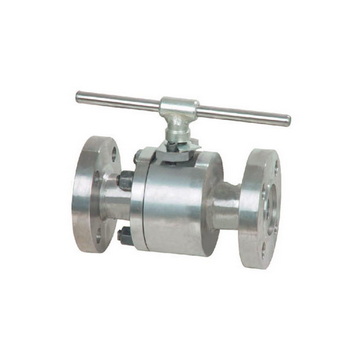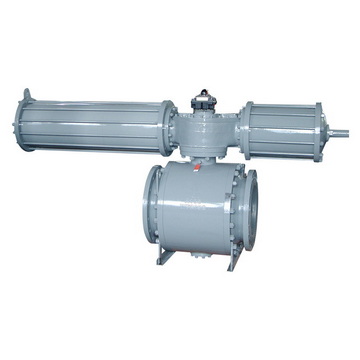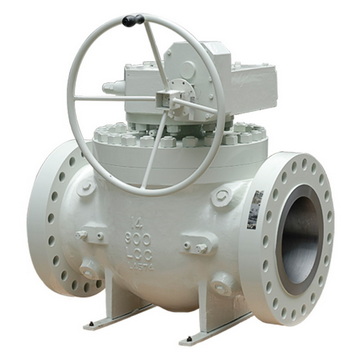Cost vs Performance: Are Stainless Steel Ball Valves Worth It
Content Menu
● What Is a Stainless Steel Ball Valve?
● Applications Across Industries
● Considerations and Potential Drawbacks
>> Weight
● Comparative Cost vs Performance
● OEM Stainless Steel Ball Valve Manufacturing in China
● Choosing the Right Stainless Steel Ball Valve
● FAQ
>> 1. What industries benefit most from stainless steel ball valves?
>> 2. How do stainless steel ball valves compare to brass valves?
>> 3. What maintenance is required for stainless steel ball valves?
>> 4. Can stainless steel ball valves be customized?
>> 5. Are stainless steel ball valves suitable for seawater applications?
Introduction
Stainless steel ball valves have established themselves as a reliable and durable solution for fluid flow control across a wide range of industries. Known for their exceptional corrosion resistance, strength, and longevity, these valves are indispensable in demanding environments such as oil and gas, chemical processing, water treatment, and marine applications. This article offers a comprehensive analysis of the cost versus performance of stainless steel ball valves, highlighting their features, advantages, potential drawbacks, and practical applications, enabling you to make an informed decision on whether they are worth the investment for your specific requirements.

What Is a Stainless Steel Ball Valve?
At its core, a stainless steel ball valve controls fluid flow through a hollow, spherical ball that rotates within the valve body. When the valve handle aligns with the piping, the hollow section of the ball allows fluid to pass through uninterrupted. Rotating the handle by 90 degrees turns the ball to block flow entirely, providing a reliable shut-off mechanism. The valve body and ball are crafted from stainless steel, an alloy predominantly composed of iron, chromium, and nickel, which is well-regarded for its resistance to rust, corrosion, and chemical degradation.
Applications Across Industries
Stainless steel ball valves find usage in many critical applications due to their strength and corrosion resistance. These include:
- Oil and Gas: Utilized extensively in upstream exploration, midstream transportation, and downstream refining and distribution processes.
- Chemical Processing: Ideal for handling aggressive chemicals and solvents where corrosion resistance is essential.
- Water Treatment and Seawater Desalination: Reliably managing potable water, wastewater, and desalination flows.
- Pharmaceuticals & Food and Beverage: Ensuring hygienic and contamination-free flow control.
- Marine and Offshore Platforms: Perfect for harsh saltwater environments, particularly on offshore drilling rigs.
- HVAC and Industrial Pipelines: Managing precise on/off flow control in heating, cooling, and industrial process piping.
Valves come in various designs to meet different operational needs, including floating ball valves, trunnion-mounted ball valves, and top-entry ball valves. Each type offers specific mechanical advantages in terms of flow control and ease of maintenance.
Key Advantages
Corrosion Resistance
Perhaps the most significant benefit of stainless steel ball valves is their high resistance to corrosion and rust. This makes them indispensable in corrosive environments such as seawater, chemical plants, and aggressive industrial atmospheres. The chromium content in stainless steel forms a passive oxide layer on the surface, shielding the metal beneath from further oxidation and corrosion.
Strength and Durability
Stainless steel ball valves boast excellent tensile strength and wear resistance. They withstand high pressures and temperatures without deforming or failing, ensuring consistent performance in extreme environments.
Wide Temperature Range
These valves can tolerate a broad spectrum of temperatures, from cryogenic lows to elevated temperatures. This versatility makes them suitable for diverse industrial sectors.
Leak-Tight Performance
Their design ensures a tight seal when closed, reducing the risk of leaks which could pose environmental hazards, safety risks, or costly product losses.
Ease of Maintenance
Thanks to their corrosion-resistant nature and mechanical design, stainless steel ball valves are easy to inspect, clean, and repair, significantly reducing downtime and maintenance expenses.
Precision Flow Control
They offer accurate flow regulation, which is critical in processes requiring consistent and controlled fluid delivery.
Long Service Life
Due to their superior materials and rugged construction, these valves typically enjoy a longer operational lifespan than alternatives made from brass, carbon steel, or plastic.

Considerations and Potential Drawbacks
Initial Investment
One of the main considerations when opting for stainless steel ball valves is the higher upfront cost compared to brass or carbon steel valves. However, the longer life expectancy and reduced maintenance requirements often offset this initial expense.
Weight
Stainless steel valves tend to be heavier, which may require stronger support structures and additional handling care during installation.
Over-specification
In low-risk or less demanding environments, such as domestic water supply or light industrial uses, stainless steel valves may represent an unnecessary cost, where cheaper materials could perform adequately.
Comparative Cost vs Performance
When evaluating valve costs, it is crucial to consider the total cost of ownership rather than just the purchase price. Stainless steel ball valves, though initially more expensive, generally provide better value over time. Their resistance to corrosion and wear reduces the frequency of replacements, repairs, and unscheduled maintenance, which can be costly and disruptive, especially in critical systems like oil refineries or offshore drilling operations.
The operational reliability of stainless steel ball valves minimizes downtime and prevents leakage-related hazards, contributing to safer and more efficient processes. In industries with strict safety or environmental standards, investing in high-performance valves is often essential and justified.
OEM Stainless Steel Ball Valve Manufacturing in China
China has emerged as a global manufacturing hub for stainless steel ball valves, with many factories specializing in OEM production for international brands, wholesalers, and industrial clients. These manufacturers produce a wide range of valves, including floating, trunnion, and top-entry designs, all meeting rigorous quality standards such as API, ANSI, DIN, ASME, and ISO.
Chinese OEM factories combine advanced manufacturing technology, strict quality control, and competitive pricing, enabling customers to access top-quality stainless steel ball valves tailored to their specific requirements. This manufacturing capability supports industries ranging from offshore oil and gas to seawater desalination and chemical processing, delivering valves that offer excellent cost-performance ratios.
Choosing the Right Stainless Steel Ball Valve
Selecting the appropriate stainless steel ball valve requires careful consideration of several factors:
- Material Grade: Common stainless steel grades include 304 and 316, with 316 offering superior resistance against chlorides and marine environments.
- Valve Type: Floating ball valves are suitable for smaller diameter pipelines and moderate pressure, while trunnion-mounted valves handle larger diameters and higher pressures.
- Pressure and Temperature Ratings: Ensure the valve specifications match or exceed your system requirements.
- End Connections: Options such as threaded, flanged, or welded ends provide different installation conveniences.
- Actuation Method: Manual, electric, or pneumatic actuators enhance operational control based on application demands.
Conclusion
Stainless steel ball valves offer a compelling combination of performance, durability, and corrosion resistance that makes them an excellent choice for demanding industrial applications. Although they come with a higher initial price tag compared to valves made from brass or carbon steel, their long service life, superior reliability, and reduced need for maintenance result in significant cost savings over time.
For industries such as oil and gas, chemical processing, water treatment, and marine operations—where valve failure can cause substantial safety, environmental, and financial consequences—the investment in stainless steel ball valves is well justified.
Chinese OEM stainless steel ball valve manufacturers provide competitively priced, high-quality products that meet international standards and are adaptable to diverse industry needs. Partnering with a trusted manufacturer ensures access to valves engineered for optimal cost-performance balance.
If you seek durable, reliable valves that combine robust construction with excellent corrosion resistance, stainless steel ball valves are truly worth the investment.
Contact us today to discuss how our comprehensive range of stainless steel ball valves can meet your operational requirements and elevate your system's performance and safety.

FAQ
1. What industries benefit most from stainless steel ball valves?
Stainless steel ball valves excel in oil and gas, chemical processing, water treatment, pharmaceuticals, food and beverage, and marine industries due to their corrosion resistance and mechanical durability.
2. How do stainless steel ball valves compare to brass valves?
While brass valves are cost-effective for light-duty applications, stainless steel ball valves provide higher corrosion resistance, can handle greater pressures and temperatures, and are suitable for aggressive environments and hygienic processes.
3. What maintenance is required for stainless steel ball valves?
Maintenance is minimal but includes periodic inspection, cleaning, lubrication of seals, and checking for wear or damage to ensure they operate optimally and maintain tight sealing.
4. Can stainless steel ball valves be customized?
Yes, many manufacturers offer OEM services with custom sizes, pressure ratings, connection types, and actuation options including manual, pneumatic, and electric, tailored to customer needs.
5. Are stainless steel ball valves suitable for seawater applications?
Absolutely. Valves made from 316-grade stainless steel resist chloride-induced corrosion, making them ideal for marine and offshore seawater environments.
Hot tags: Stainless Steel Ball Valve Cost vs Performance, Are Stainless Steel Ball Valves Worth It, Stainless Steel Ball Valve Price Comparison, Benefits of Stainless Steel Ball Valves, Stainless Steel Ball Valve ROI Analysis, Cost Effectiveness of Stainless Steel Ball Valves, High Performance Stainless Steel Ball Valve Review, Industrial Stainless Steel Ball Valve Value, Long Term Savings with Stainless Steel Ball Valves, Stainless Steel Ball Valve Investment Guide